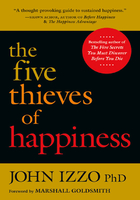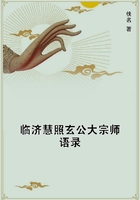I Fall into Piety and Out Again
In the spring of that year, 1641, when I was recovered of my supposed plague and went about the house again, I fell in a dump of melancholy, for I had loved my warm pampered life in bed, and could find little gust or appetite for my customary tasks.
My mother said that I had fared too sumptuously during my sickness, and resolved that I must be cupped of half a pint of blood each day for ten days to restore me; and now that I was no longer under Trunco's care there was no denial, but I must submit patiently. Which loss of blood weakened me much and made me more melancholic yet. My father called in Dr. Bates, an Oxford physician, who was confident that I had a scurvy and prescribed me acrimonious medicaments: boiled scurvy grass, wormwood beer and mustard at every meal, which my stomach loathed.
Moreover, I had the spring as an enemy to contend with. Our poets pretend that spring is a jocund season, but doubtless they borrow this conceit thoughtlessly from the Italians and Spanish, in whose gardens almond trees are in firm fruit, while ours are scarcely in flower. At Forest Hill in that year the east wind blew very bitter throughout Lent, a wind which, according to the proverb, is good neither for man nor beast; and our house, being an old one, was not tight against the blast. The primroses were backward in blooming and gave me little pleasure, with no Mun at my side to gather them; yet in recollection of him I still ordered and tied my nosegays as he had showed me.
The season was further overcast by the coming trial, in Parliament, of the Earl of Strafford, the King's principal adviser and most skilful commander, on the charge of illegal and treasonable acts done by him in Ireland. It was evident to all who considered his case that he had been a most faithful servant to His Majesty, and that if he were a traitor to England, why, then, so was his Master who approved his acts—unless it were that a King could do no wrong. Yet those in Parliament were bent upon condemning the Earl to death, as an exemplary warning, and not any lesser penalty would satisfy them, for "stone-dead hath no fellow", as they said. Nobody could think so ill of His Majesty as to believe that he would suffer a faithful servant to die; on the other hand it was said that if he offered the least interference with the course of Parliamentary justice the Kingdom would hardly escape a tumble into civil war. There was a saying quoted by the Parliamentarians—for already the parties were thus ranged, Parliamentarians against King's men or Royalists: "No man can well say how many hair's-breadths make a tall man, and how many a short man; yet we all know a tall man, when we see him, from a short man; and how many illegal acts make a traitor is not to be said, yet we all know a traitor, when we see him, from a man who is true and loyal."
My father was discreet, and offered no opinion, but would say to the contenders of either party: "I cannot dispute the truth of what you say, yet I hold this to be a very ill business, and dangerous." And to one who sought to inflame matters by violent speech he would say: "Softly, sir, softly! Remember that he who will blow the coals with his mouth must not wonder if some sparks fly into his face!" But my mother, being born a Moulton of Worcestershire, which is a very loyal county, was all for the King and ranted against "the currish dogs and traitors led by that rogue Pym."
In Passion Week my Aunt Jones came again to our house with my Uncle Jones, a very austere man, who took advantage of my continuing dark mood to converse very earnestly with me about my immortal soul; asking shrewdly, did my conscience prick me, had I fallen into carnal faults, did I hope to be numbered among the elect of God? etc., etc. In our house we were as light-hearted in religious performance as my father was in his execution of justice: we did as others did, and as the Law required us to do, in the matter of church observance—no less and no more—making no dismal burden of our mortality. I hardly knew, indeed, that I possessed an immortal soul of my very own; for the curate in his sermons touched little upon questions of individual salvation. He treated rather of the large bounty of God and of the generous love that is found between good neighbours, crying in the words of the Psalmist: "Brethren, what a joyful thing it is to dwell together in unity!" and he often promised us that, if we walked in meekness and good cheer and charity together, and avoided any offence against the Law, our whole congregation of St. Nicholas parish would march together at last into the bliss of Paradise, in due order of rank and substance, and there all become blessed angels together, to sing Hosannas for everlasting ages.
My Uncle Jones now told me that I must remember my Creator in the days of my youth, that the evil days might not come (as they had come to him and to my aunt) when I should say "I have no pleasure in them." This was something new, which I heeded because of its strangeness and sharpness, and when my Uncle went away again he left two books with me, Dr. Sibbes' Bruised Reed and Mr. Robert Bolton's Four Best Things, and Instruction for the Right Comforting of Afflicted Consciences, which last was a new edition imprinted in that same year.
The Bruised Reed I could not stomach; but Mr. Bolton wrote very comfortably, and convinced me that I had a quick, tender conscience; and searching this new-found, quick, tender conscience well, I found it afflicted by an innumerable of sins that I had not known before by so black a name; and I instantly resolved to repent and to amend all and to walk before God with a perfect heart. Then a watery light of holiness seemed to shine about me, and I was licked, as I thought, by the tongues of that hopeful fire whereof the books made promise.
This was a short-lived mood, for soon the light of holiness dimmed, and the flames languished, and before night came I had returned into the old mire of my errors—the dog to his vomit, as the Scripture says—and called myself a miserable, hard-hearted sinner, a wretched back-slideress, a filthy beast. I turned my vellum book upside down and began to write at the other end, keeping a very precise inventory of blessings and crosses for every day; and another of temptations that had beset me, with an addition sign or a subtraction sign to signify whether I had overcome or fallen; and another of resolutions taken and whether performed. The signs that I most noted were: of gluttony, for I had a passion for sweetmeats of every sort and for the tender breast of chicken; of vanity, which was cockered up by my new dress made of red and green flowered chintz, bought in London at thirty shillings a yard; of sloth, for I would never be the first, of Zara and myself, to rise from our bed, but would wait until she was fully attired and had her hand on the door to go out; of lying and glozing, with which I covered myself when my mother asked me questions that I would not answer; of anger, how I fumed and chafed when I was ruled by an elder person; of cruelty, to Trunco, when I was out of patience but dared not vent my evil humour upon anyone else, for I let fly at her, knowing that in her great love for me she would not long resent it.
This keeping of accounts I found a great inconveniency, for either I had to hold the items constantly in my head, saying them over to myself for dread of forgetting them before night when I should write them down; or else, many times a day, to fly up to my chamber and unlock the book, and get out my pen and ink-pot and write the tale down, and then sprinkle the ink with the sand-caster, and wait until it was dried and then lock the book again. This, with the watchful guard that I kept upon my tongue and hands, put a constraint upon me wherein I might have gloried, but that it was so irksome and unnatural. I could, thus far, regard myself as merely in the condition of Preparatory Grace, and not yet having that Special Grace which is vouchsafed to saints; and my awakened soul, the more I searched it, appeared in a very dreadful and passionate plight. To check my vanity, I cultivated a negligence of my hair and apparel which ill became me; and when my mother observed that I ate and drank more sparingly than usual and that I went about softly and answered her submissively, she concluded that I had done something mightily amiss, which I wished to hide from her. She called me to her chamber on the morning of the second day of my new life and tried to draw a confession from me, but I had nothing to confess beyond small things which to her were not worth the confessing; so that she thought that I deceived her, and railed at me. I humbly cast down my eyes to the floor, but said no word to her of my Preparatory Grace—if Grace at all it was, and no illusion—lest she should rail the louder.
My mother often taunted at my Uncle Jones, though never to his face or in the presence of my father, for his canting, puritanical, hypocritical ways. She called him a fox who had lost his tail in a trap, and who would persuade all other foxes (and vixens, too) to lose theirs, so that he might not feel abominable in his tailless condition. I felt myself strong enough in the faith, but was not of the stuff that martyrs are made of, and would do nothing that would provoke my mother to mock me as a she-disciple of my Uncle Jones with his plain collared bands and absurd hat. However, one day after dinner, my mother watched how I crept up to my chamber, thinking myself unobserved; and came softly after me and broke in upon me just as I was unlocking my book to write. She did not give me the he when, trembling at the alarm, I told her faintly that I was keeping a private account of my sins, which I intended only for my own eye and that of my Maker. Instead, she burst out laughing in my face. She said that it had been just so with her when she was of an equal age with me and had fallen in love with my father—she had eased her afflicted heart by writing her longings in a book like mine, some of them in plain prose, but some turned into indifferent good verse. Then she kissed me, and laughed again, and told me to love whom I would, but to be as discreet as she had been, and to guard my maidenhead well, which was a valuable commodity, a pearl of price, not to be thrown away on any handsome rogue, but to be preserved for a good match. And she said that she hoped I would not marry a poor man, as she herself had done; for though the fortune that she had brought my father had caused him to treat her with unusual kindness, yet because of the leanness of his purse she must constantly deny herself of pleasures that she had thought never to be without.
I had a mind to cut the lecture short by assuring her that my only love was for the Lord Jesus; but I refrained. For, in the first place, she would have thought that I added the fault of blasphemy to that of deception and would have pulled my ears for me; and, in the second, I could not conceal the truth from myself, which was that in the perversity of my heart I loved Mun, a sinful man, as dearly as anything else whatsoever.
My mother thereafter, if I chanced to be remiss or behind-hand with my household tasks, would twit me light-heartedly, and before my brothers and sisters, with being love-sick, and would propose the most improbable persons as the objects of my love with "Confess, daughter—surely it cannot be he?"
I was discomposed and abashed, and knew not how I should answer if she named Mun. To avoid this peril, I strove to forget him and to give my heart wholly to God; but I could not pluck him out from the chief seat. Then my sins mounted, for I could not show myself meek, try as I might. Zara twitted and taunted me to distraction, playing my mother's game, yet in a silly, spiteful manner.
At last, five or six days after Easter, as we sat together in the hall at our needlework, she cried suddenly: "I have it, I have it—it is Mr. Tiresias, him whom we met that day at Woodstock! I overheard you when you asked our brother James to tell you all that he knew about the other Tiresias." Then I dropped the band that I was stitching and flew at Zara and scratched her cheek with my nails and thumped her in the belly.
Yet even in her shrieks and tears she exulted, crying: "So it is he! it is he! I have guessed it. Marie languishes for love of Mr. Tiresias."
Oh, I mauled her so savagely with my teeth that my brother Richard had to pluck me from her, wrenching me back by the hair with both his hands.
Then ensued a great repentance, with a heinous sin to mark down in my book, for (as I wrote) had not my brother Richard by the Grace of God passed by the hall and heard the hubbub, I should have murdered my own sister, who truly meant no great harm. Yet I comforted myself a little by writing that though temptation at that time had prevailed against the spirit and the love of God, yet it was not to the setting up in me of the contrary habit in predominancy. I had been tripped up by the Devil, yet by God's grace would rise again refreshed.
When I had written this, I heard my brother James calling my name, and went out to him and he kissed me and said: "Sister, you have not gone riding for ten days or more. It may be that what has put you into such an ill-humour is this: that you have not jogged and jolted yourself sufficiently, so that your blood stands still in your veins and poison scums up. Come out with me now on Roarer and we'll ride towards Red Hill."
I was grateful to him, and made ready, and forth we went. My spirits soared again, so soon as ever I was back in the saddle. The greyhound with us started a fox and, as we coursed after him, half a field behind, he turned his muzzle towards Beckley and ran stoutly. My Roarer was a great unruly sorrel, and because I had not lately exercised him he was mad for the chase and took the bit between his teeth, so that I could no longer manage him. I clung to the pommel of my saddle, and prayed wildly to God to preserve me, for the fox was running to hide in a deep, old pit, called Shepherd's Pit, which has gorse bushes at the lip. My Roarer swerved aside, avoiding the danger, and leaped over a bank instead, into a narrow lane that led into the pit. He tumbled me over his head, where I lighted up to my elbows in mire, and took no hurt; and he lighted with two feet on one side of me, and two on the other, in a marvellous manner, not hurting me, though he trod the shoe off my foot.
This was a great mercy, worthy to be recorded in my book; but when we returned home, having killed the fox in the pit, I found that a spark from the hearth had leaped into my sewing-basket, where I had left it in the hall. The fire had scorched a hole in the lace-band that I was stitching, and had spread and burned the brocaded lining of the basket, with a pair of fine lace gloves wrapped in paper, and other small things that I prized, as ribbons and silk thread, and the basket was smouldering with a sour smoke.
Was this not too much to bear? I knew well that Zara had seen my things burning and purposely let them burn, though she protested that she had not set foot in the hall again after my cruelty to her. That night, though I made up my inventory, I ran two lines beneath it with my pen, to show that it was now at an end, and that I had struck sail. For Special Grace was long in coming, and too much thought upon sin breeds sin; and I trusted that God would not be severe with me when I owned my incapacity at present to serve Him as faithfully as Mr. Bolton or Dr. Sibbes or my Uncle Jones would have me do.
The next day I lay in bed ten minutes longer than I needed to lie, and took pleasure in it, and was myself again, and have never since wilfully taken up any book of sermons or other pious writings which might remind me of that most precious but horribly uncomfortable possession, my soul. My family made no more sport of me, and Zara feared my rage; nevertheless, it stuck in the memory of the household how wrathful I had been when Mr. Tiresias was named as the man for whose love I languished. What James could tell me of the other ancient Tiresias, whose name our gentleman had borrowed, was only this, that he was a Theban poet or prophet in ancient days and that he was blind; but when he went to London, as he passed through St. Paul's Churchyard, he thought to enquire of the booksellers there for a Masque published under the name of Mr. Henry Lawes (whereof Mr. Tiresias had written the poem) and was directed to where the book might be bought, and brought it back as a gift to me.
I had read poems before, especially the long, pleasant verse-tales by Samuel Daniel and Edmund Spenser, which my mother had, but more for the matter rather than for the art. Now, however, that I had put by my godliness as unseasonable, I turned for the refreshment of my mind to the reading of poems. I was of an age to fancy myself a judge of the art, and read as many of the newer books as James could borrow of his friends at Oxford; and this Masque I judged to be exceeding fine poetry. There were two brothers in the poem, with a sister, who was lost in a wild wood by their negligence. A sorcerer named Comus, with a rabble of tipsy monsters, finds her out and tempts her to wantonness; but she protests that she is chaste and that no sorcerer has any power over chastity. He argues that chastity is no jewel, but a bauble—she still protesting the contrary—and offers her a magic cup to drink, which shall overcome her scruples. At this the brothers rush in with swords drawn, and scatter him and his rabble. The rest of the action is concerned with the difficulty that the brothers meet of oversetting a charm which has fixed the lady fast in her chair, and they call in a Nymph who sings a lovely song and so looses her.
The verses fascinated my mind with their serpentine mazes of sound, and the argument bit in deep. I asked my brother James to give me his true opinion of the poem, but to weigh it well first, for I thought the verses extraordinary good and would not be pleased with a contrary judgment.
James answered judiciously, when he had read it, that this was an extraordinary poem indeed, and presented two notable paradoxes. The first, that it appeared a compost or mosaic of many other poems that he had read, set in a frame borrowed from the Comus of Henri du Puy—a Latin poem which had been published in Oxford a few years since and a part of which, James said, he had been instructed to turn into Greek hexameter verses as a college exercise. Yet, said he, none could deny that this new Comus outwent them all for smoothness and beauty, or that the poet was a discoverer of new things by means of the old. The second paradox was that, after the arguments pro and contra upon the true worth of chastity had been bandied between the Lady and Comus, Comus was defeated, yet that this defeat was only by the sword, not by force of reason; moreover, the lines that had the greater compulsion in them and which would linger longest in his memory were those that the Sorcerer spoke against the ungrateful folly of abstinence, and against the puritanical manner of living "like Nature's bastards, not her sons."
James also said: "The man who wrote this, though I dare call him a very skilful poet, yet seems uncomfortable in the imaginations of his heart and unhappy in the acuteness of his mind. One thing I will wager: he is not a nurseling of our own University. This smacks to me of Cambridge, where they tune their viol strings always a little sharp. It is a poem to admire rather than to love; and here is another paradox, for how can any man truly admire what he does not love? Almost, I prefer the silly, homely verses of Taylor the Water-poet to these: for with Sculler Taylor there is nothing hid, but all bubblingly well expressed, though the matter be trifling. Nay, I mean not that, for there is no comparison between poet and rhymester. Indeed, I know not well what I mean. 'Tis the case with me: Non amo te, Licini, nec possum dicere quare—I do not love thee, Liciny, but cannot tell the reason why."
James could not let the argument rest there, but came back to it often in his discourse and carried it further. "Dear heart, this fellow Tiresias troubles me much. You say that in the garden at Enstone he spoke of pluming his wings. This word 'pluming' might be understood in two senses: either as smoothing and dressing his wing-feathers, or as furnishing his naked wings with borrowed plumage. For he has plucked out the feathers from other poets' wings to make of himself a great immortal Ph?nix; yet has gone about it so cunningly and with such admirable judgment that these plumes glow with richer colour upon his wings and tail, as he preens them, than in their former places. Or, I might say, he has stolen the laborious honey from the hives of his fellow poets, to spread it thick upon his own white roll, and now says to them scornfully: 'Sic vos non vobis mellificatis, apes'—'Thus, bees, you gather honey, yet not for your own maws.' And I think that I can read his secret: he is more passionately set on literate fame than in love with poetry itself. Yet, by God, I have no flaw to find in a single line, search as I may. There's a turbulent devil in him, which devil shows his cloven foot, as I say, in the speeches of the wizard Comus."
I would not agree with James, and held it fitting that the pro and contra of chastity should be exactly counterpoised, and that only the sword, or compulsion, should decide the cause in Virtue's favour. If it were not for the Law's compulsion, what woman born would not follow the inclination of her heart and prostitute herself to the first handsome young man for whom she took a liking? I said, also, that what he said about the University of Cambridge snowed the spiteful bias of his judgment. And I pressed him for instances that would prove this poet a plagiary or copyist; some dozen of which he then gave me, but in every case the resemblances between the old and the new seemed slight and accidental. James, though he was a patient and affectionate brother, almost lost his patience with me in the end and cried out: "O Child, Child, cannot you see, cannot you hear? It is not the single words or phrases so much as the cadence or very soul of the verse that he has borrowed: here from William Browne's Pastorals, and there from John Fletcher's Shepherdess, and there from George Peele's Old Wives' Tale, and here again…."
"I neither see it," I said, "nor hear it. This Masque is a lovely poem. Then, as for literate fame, how can a poet not desire it? Fame assures him readers and patrons; without readers and patrons a poet is undone, his poems are locked up in the prison of his cupboard drawer and serve no purpose."
"The more that a poet regards Fame, so much the less will he regard Truth," said James.
To this I objected: "I had not thought that it was for poets to speak truth, which is rather left to the divines and philosophers to expound."
He answered: "Sister, you are fallen into a vulgar error. Poetry without truth is mere honey-cake and sugar-works."
"I am a glutton for both," I confessed.
"Then it will be your ruin," said he, a little too soberly for my liking. He begged me not to be offended, but asked me whether it were not true what Zara had said, that I had conceived a sort of love for the author of this masque. I answered him, that he could think what he pleased, yet I could not help but be mightily offended by his question. He begged my pardon, which I grudgingly granted. Yet I thought it perhaps a useful thing for my purpose that the hounds were running on a false scent. Let them bay after my supposed love for this Cambridge scholar and poet; I would be secretly happy in my love for an Oxford dunce and soldier.
Then the East wind abated, and a mild wind blew from the South, and soon the little lambs in the fields were grown half as big as the ewes; and though the Earl of Strafford was convicted of treason and beheaded, yet the King, who had undertaken that not an hair of his head should be touched, let him die, for fear of worse things; and the country breathed again, because the threat of war had passed. The Parliament pressed on with its legislation, wresting from the King a great part of his powers, though leaving him the name and honours of sovereignty, and none expected that where he had once yielded—very basely, as many considered—he would dare to stand again. The Scots were still kept under arms in the North, as a caution to him that he must mind well what he said and did.
We had good crops that summer, of hay, wheat and barley, though other farmers were not so well advantaged, whose lands were fried up by the unusual fierce sun. Nothing remarkable happened in our house or village except that upon a complaint of two householders to Bishop Skinner (who succeeded Dr. Bancroft, recently dead) the curate was examined by my father in private; who judged his familiarity with Molly Wilmot to have become scandalous, though there might be no adultery proved against him. My father liked the Rev. John Fulker well, who was a good-hearted man, though a loose liver; and did not bring him before the Ecclesiastical Court, but sent him off quietly and I do not know what has become of him. My father was careful in his choice of a successor, and therefore consulted with my Uncle Jones and asked him to recommend a priest fit for the times: that is to say, one who would be content to obey Parliament, yet without railing indecently at the bishops.
Thus the Rev. Luke Proctor came to us, who was a tall, grave, budge man, with a leaning towards the Presbyterial discipline, and no fondness for Whitsun-ales and leet-ales and clerk-ales and our other regular holidays. He did not rail against bishops, but neither did he magnify the bounty of God; preaching instead of the terrors that lay in store for the whole land, unless we repented. Once at evensong, when the sun set as he was preaching to us, he said: "My brethren, I doubt not but that you see this broad red glow as a jolly sunset, and as 'the shepherd's delight'; but to me it shines as the distant glow of that Hell which is prepared for the ungodly, the hard-hearted, the scoffers, the liars, the adulterers and the fornicators."
Whereat John Mathadee's young child, in a seat behind us, set up a wail, and the curate pointed at him and said: "Yea, wail, child, you do well to wail! For in that day shall women rejoice who are barren, because of the curse that has come upon their sisters whose wombs were fruitful." By this he offended my mother, who led all her younger children out of the church; and so did Goodwife Mathadee.
The poet whom the Reverend Proctor loved best and from whose facile, flat verse he quoted oftenest, as "very apples of gold with pictures of silver," was Mr. George Wither, a Puritan—he to whom old Ben Jonson had denied the title of poet, naming him "a mountebank of wit and scorn of all the Muses," because he wrote merely to suit the capacity of the rabble. Mr. Wither (who has since become a high officer in General Cromwell's army) had prophesied to England after this manner, which sounded lovely in our curate's ears:
Upon thy fleets, thine havens, and thy ports,
Upon thine armies and thy strong-walled forts,
Upon thy pleasures and commodities,
Upon thine handicrafts and merchandize,
Upon the fruits and cattle in thy fields,
On what the air, the earth, or water yields,
On Prince and People, on both weak and strong,
On priest and prophet, on both old and young,
YEA, ON EACH PERSON, PLACE AND EVERYTHING
His just, deservèd judgments God will bring.
"Yea, Amen, Amen, Amen and even so," cried our curate—"unless ye repent!"
When at Michaelmas, by order of Parliament, my father was obliged to blot out or break all deceitful idols that were to be found in the Church, whether images, pictures or painted glass, this curate was ready enough to comply and was for breaking the glass with a stick; but my father would not have it, because, as he said, by such awkwardness some child might run a splinter into his foot or hand. He conveyed the glass away himself that night, and gave out that he had thrown it into a pit in the woods, together with the dark old pictures painted on boards, and the little decayed statue of St. Nicholas holding a child on either arm, and the ancient pulpit-cloth of purple velvet handsomely broidered with plumed angels, and the ancient cope broidered with six-winged seraphim and other devices. However, I believe that he hid them somewhere in the cellar of our house, in the hope that one day a milder Parliament would reverse this harsh and foolish judgment. The people grieved heartily when these ancient ornaments were ordered to be removed, and when they saw how the curate himself with a spud, or scurvy knife, had scraped from the plastered wall of the chancel the pictures that we had known and loved from childhood: of Saint Nicholas, who wore a tall mitre, distributing cakes and apples to little children, and of St. Nicholas dealing the heretic Arius a great whirret on the ear with his fist. They muttered that good luck had left the town for ever; but they could do nothing, for it was too late and Parliament not to be gainsaid. Then the Church officers came to view the Church and presently certified that the thing was done according to order and all relics of superstition removed.
The Reverend Proctor always climbed up into the pulpit holding a long roll of paper in his fist, the other end resting upon his right shoulder, as it might be an axe. He gave out his text in a resolute voice, twice over, sawing it off like a log from the massy trunk of Scripture and, after he had glowered awhile at the pews and benches, addressed himself to the task of splitting it with his axe. Sometimes the wood proved soft or of a straight grain, so that with one or two little taps he would soon reduce it to billet-wood; but sometimes it was knotted and twisted and he must scheme and writhe and struggle and sweat, using a beetle and twenty wedges to rive it apart into consumable pieces.
I remember how once he told us: "My brethren, here is a fine sweet discovery, that I have found in the three-and-twentieth chapter of the Gospel according to Saint Luke, the eight-and-twentieth verse: Weep not for me, but weep for yourselves. See now how easily these eight words may be divided: our text falls apart, it falls apart, I say, as easily as a Valencia orange, into eight several divisions, or little pigs as the children call 'em.
Weep not.
But weep.
Weep not, but weep.
Weep for me.
For yourselves.
For me, for yourselves.
Weep not for me.
But weep for yourselves.
These eight headings are like the points upon the mariner's compass, the four cardinal points and the four intermediate points. Now to begin from Due North, that is to say from 'Weep not.' Here the Lord plainly commands us not to weep. Who are we to gainsay or disobey Him? Yet may we humbly inquire whether His injunction is conveyed to our inward spiritual eye or to our outward carnal eye, or whether to both? My brethren, when I come to North by East I shall have somewhat to tell you upon this score. But in the meantime, listen how the Lord commands you to weep not, to restrain the fountains of grief (if only for an instant of time) that, weeping not, as children startled in the midst of their grief, ye may the better give ear to His words of terror and judgment…." And so he would continue, splitting his fine ash log into slivers which he gathered up at the end, winding them together with a cord and heaving them upon his shoulder. The people called him Woodman Luke.
He had that horrible habit, when he prayed, of rolling his eyes inward so that the pupils vanished, which is called "hoisting the white"; and he pronounced words strangely in the new Presbyterial manner, with "Aymen" for "Amen" and "glaurious" for "glorious" and "the Laud's murcy" for "the Lord's mercy". He always preached with an hour-glass on the pulpit ledge beside him until all the sand was through. One day, being the feast of All Hallows, he would have turned the glass about again and preached a second hour, but my father cried out from his seat: "Sir, I smell a stink of burning. I pray you, excuse me!" All the congregation ran out after him in fear, leaving the preacher in the pulpit, preaching still.
Then Goodman Mathadee asked my father: "Your Worship, did you indeed smell burning?"
"Ay, neighbour," said my father. "I smelt the little veal pasties burning in the oven of our bakehouse. Ten minutes more of the sermon and they would have been cinders."















